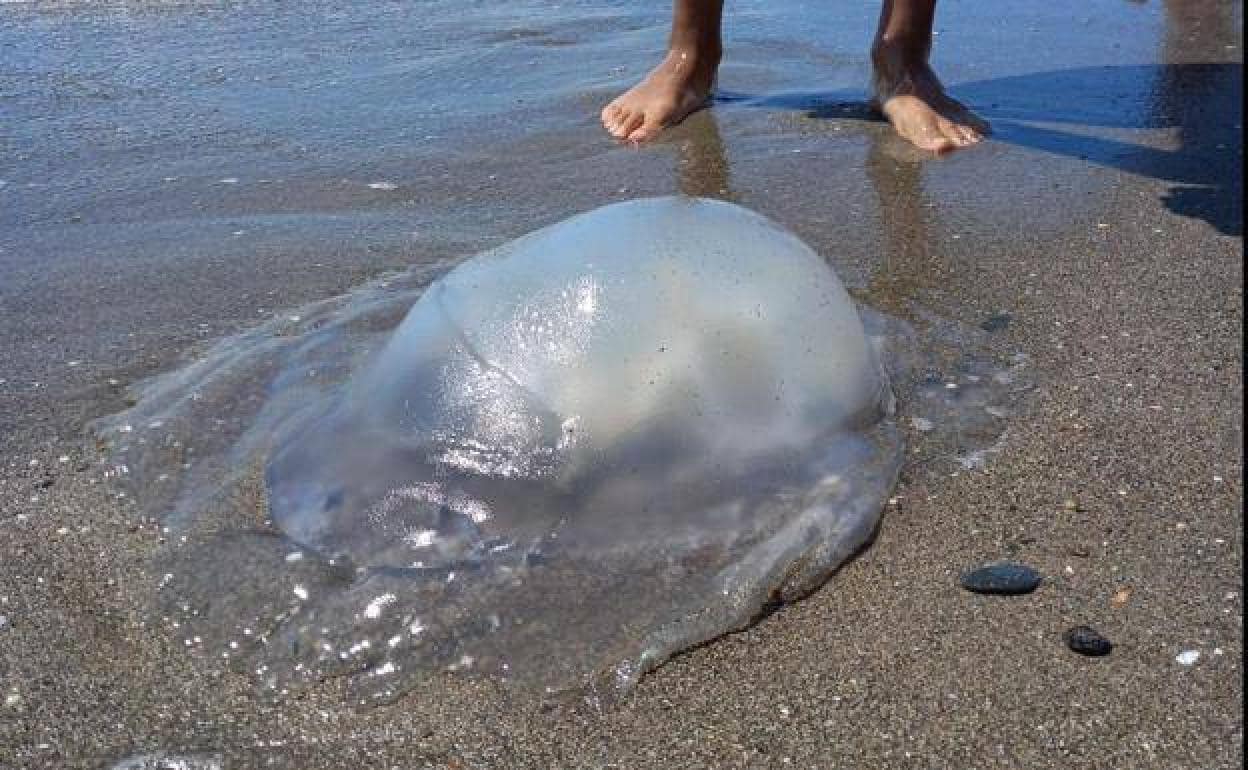There could be jellyfish in the Mediterranean all year round in the future, biologists warn
Climate change is creating perfect conditions for them to stay in the sea of southern Spain for much longer than we are used to
SUR
MALAGA.
Monday, 24 October 2022, 19:21
In recent years beachgoers on the Costa del Sol have become used to seeing jellyfish during the summer, but experts are now becoming alarmed because they are coming in greater numbers and they arrive earlier. In fact the Safe Sea organisation believes they can no longer be considered a summer phenomenon.
“Jellyfish are a sign from the sea that we must stop treating it badly,” said Josep María Gili, a researcher at the Marine Biology and Oceanography Department of the ICM-CSIC and one of the world’s experts on jellyfish.
“In years when the spring is rainy and the sea temperature is lower, their cycles are delayed so they arrive in the summer and there are fewer in the ocean. However, with climate change, spring has become shorter and drier and the summers are longer and hot nowadays, and this means the jellyfish cycles have become more frequent and numerous. We have gone from every 11 or 12 years to every six years or even less,” he explained.
Does this mean there could be jellyfish in the Mediterranean and on the beaches in October or in April? Yes, said Gili. The season is no longer from June to September; it starts earlier and lasts until well into the autumn.
Sources at Safe Sea also point out that the jellyfish we see in southern Spain are two different species. One is the Pelagia noctiluca, which is smaller and very dangerous, and the other is Rhizostoma Luteum which, although bigger, is less of a danger.
How we can protect ourselves
Safe Sea, which produces the only anti-jellyfish sun cream in the world, says that in reality the creatures sting but don’t attack. “They are passive beings that roam in open and coastal waters, with no intention of doing harm. However, their tentacles are formed of thousands of stinging cells which release a toxic venom when they come into contact with a foreign body,” the company said
However, the jellyfish can even sting when they are dead, so they are always a risk. Safe Sea says the only form of protection is its sun cream, which inhibits rather than repels. In other words, it blocks the sensory cells of the jellyfish tentacles so when they come into contact with us they do not recognise us as being a threat or intimidating.
